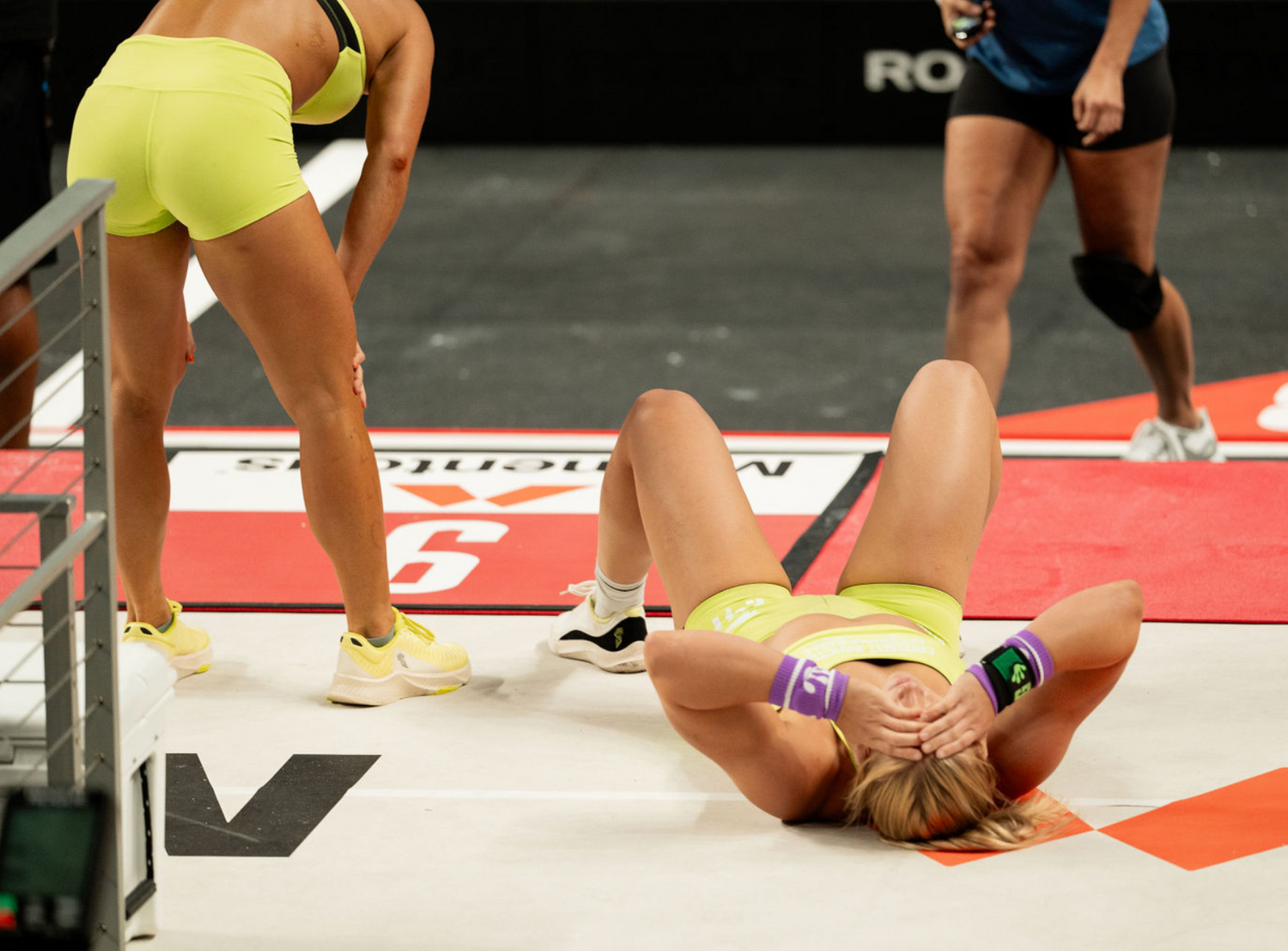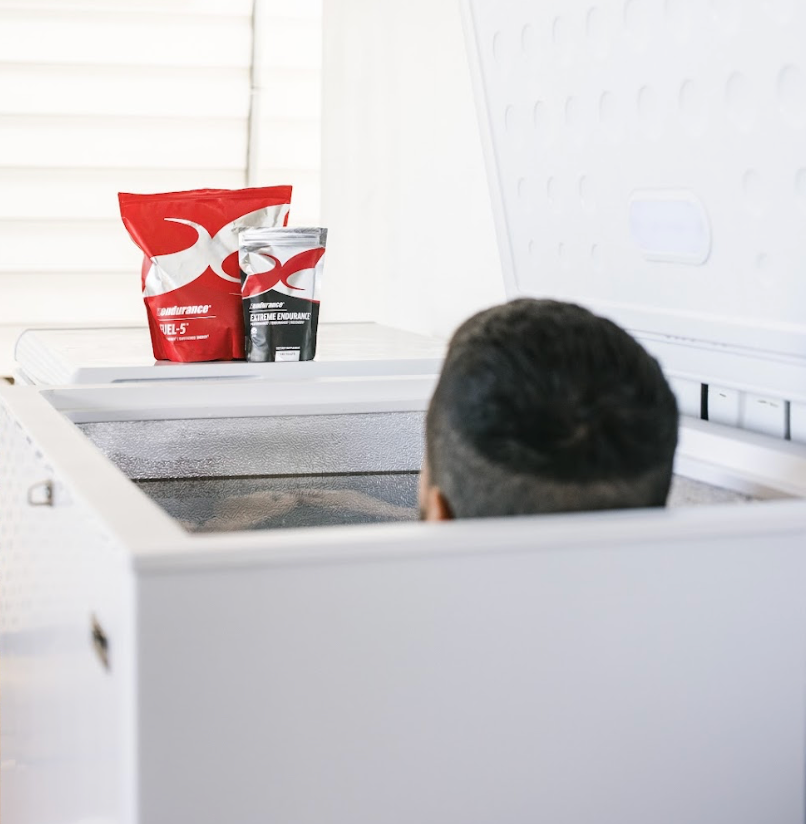Athlete fatigue represents a significant challenge in sports performance, often manifesting as a persistent state of exhaustion that impairs physical and mental capabilities. This condition can affect athletes across various disciplines, leading to reduced training efficacy and increased risk of injury. This article examines the symptoms of athlete fatigue, outlines five primary causes supported by scientific evidence, and provides strategies for prevention. Additionally, it discusses evidence-based supplements, including relevant products from Xendurance, and highlights examples of well-known athletes who have successfully managed and overcome fatigue. By addressing these factors proactively, athletes can maintain optimal performance levels and extend their careers.
Symptoms of Athlete Fatigue
Athlete fatigue presents through a range of physical, mental, and performance-related indicators. Physically, it may include prolonged muscle soreness, weakness, elevated resting heart rates, and frequent headaches. Performance declines often involve reduced strength, endurance, or speed, such as difficulty maintaining previous workout intensities. Mentally, symptoms can encompass irritability, decreased motivation, anxiety, and impaired concentration. Sleep disturbances, despite increased tiredness, are common, as is a heightened susceptibility to illness due to immune suppression. Monitoring these signs through training logs or wearable devices is essential for early intervention, as unchecked fatigue can progress to overtraining syndrome, characterized by long-term underperformance and recovery challenges.
Five Main Causes of Athlete Fatigue
Scientific research identifies multiple interconnected factors contributing to fatigue in athletes. The following sections detail five key causes, drawing on physiological, psychological, and environmental evidence, along with preventive measures.
1. Overtraining and Insufficient Recovery
Overtraining occurs when training volume or intensity exceeds the body's recovery capacity, leading to hormonal imbalances, such as elevated cortisol and reduced testosterone levels, which impair muscle repair and energy restoration. Physiological studies indicate that this results in glycogen depletion, increased inflammation, and central nervous system fatigue, where the brain limits effort to prevent damage. Endurance athletes are particularly susceptible, with research showing persistent underperformance due to these mechanisms.
To prevent overtraining, implement periodized training programs that cycle intensity every 4-6 weeks, incorporating rest or active recovery days. Utilize heart rate variability monitoring to assess readiness and ensure at least one full rest day per week. Active recovery methods, such as light mobility exercises, can facilitate adaptation without overload.
2. Poor Nutrition and Dehydration
Inadequate nutrient intake, particularly carbohydrates, leads to low energy availability, depleting ATP and glycogen stores essential for muscle function. Dehydration, even at 2% body weight loss, thickens blood, reduces oxygen delivery, and elevates core temperature, exacerbating fatigue during exercise. Studies on athletes demonstrate that poor nutritional timing contributes to chronic energy deficits and metabolic stress.
Prevention involves consuming balanced pre-workout meals with complex carbohydrates 2-3 hours before activity. During prolonged sessions, maintain hydration with 500-700ml of electrolyte solutions hourly. Post-exercise, refuel within 30 minutes using a 3:1 carbohydrate-to-protein ratio to replenish stores. Tracking intake via apps and pre/post weigh-ins can optimize these practices.
3. Sleep Deprivation
Insufficient sleep disrupts hormone regulation, increasing cortisol while decreasing growth hormone, which hinders tissue repair and elevates perceived exertion. Research shows that athletes require 7-9 hours nightly, but high training loads often reduce deep sleep stages, leading to cumulative fatigue and impaired performance.
To mitigate this, establish consistent sleep schedules and create optimal environments (cool, dark rooms). Avoid caffeine after noon and incorporate short naps (20-30 minutes) on intense training days. Sleep tracking devices can help monitor and adjust habits for better recovery.
4. Psychological Stress
Mental fatigue arises from prolonged cognitive demands, affecting executive functions and decision-making in sports. The central governor theory posits that the brain induces fatigue to protect against overexertion, influenced by neurotransmitter imbalances like reduced serotonin. High-intensity training and competition stressors amplify this, impairing endurance and skill execution.
Preventive strategies include daily mindfulness or meditation practices to build resilience. Setting realistic goals, journaling stressors, and integrating non-competitive activities can reduce mental load. Professional support from coaches or psychologists aids in managing psychological demands.
5. Metabolic Waste Accumulation and Illness
Intense exercise accumulates byproducts like lactate and hydrogen ions, causing peripheral muscle fatigue. Underlying conditions, such as iron deficiency or infections, further impair oxygen transport and energy production, heightening vulnerability. Research links these to reduced performance in combat sports and endurance activities.
Prevention requires rest at illness onset and regular blood tests for deficiencies. Proper warm-ups and cool-downs help clear metabolites, while hygiene protocols minimize infection risks. Routine health assessments ensure early detection and management.
Science-Backed Supplements for Fatigue Prevention
Evidence-based supplements can support energy metabolism and recovery when integrated with diet and training. Creatine enhances ATP regeneration, improving strength and reducing fatigue in high-intensity efforts, with 5g daily shown to boost recovery. Branched-chain amino acids (BCAAs) help minimize muscle breakdown and perceived fatigue post-exercise. Caffeine delays tiredness by blocking adenosine, with 200-400mg pre-workout enhancing endurance. Vitamin B complex supports energy production, improving endurance after 28 days of use. Omega-3 fatty acids reduce inflammation and aid recovery. Electrolytes maintain hydration, preventing dehydration-related fatigue. Antioxidants like vitamin E and coenzyme Q10 mitigate oxidative stress.
Xendurance products align with these needs; their Extreme Endurance acts as a lactic acid buffer, clinically proven to reduce lactic acid by 26%, lower creatine kinase levels, and enhance aerobic threshold, supporting endurance and recovery. Their Creatine-JB reduces soreness, while Fuel-5, their pre-workout, provides clean energy boosts, and Protein supplement aids post-exercise repair. Consultation with nutritionists or training professionals may be recommended before use.
Case Studies: Well-Known Athletes Who Overcame Fatigue
Several prominent athletes have faced and surmounted fatigue-related challenges, offering insights into effective recovery.
Simone Manuel, an American Olympic gold medalist in swimming, was diagnosed with overtraining syndrome in March 2021, experiencing symptoms like extreme fatigue, irritability, loss of appetite, anxiety, and insomnia, exacerbated by the COVID-19 pandemic. To overcome it, she took a prescribed three-week break from training just before the Tokyo 2020 Olympics, went public with her diagnosis during the USA Olympic Trials, and competed selectively, earning a bronze medal in the 4x100m freestyle relay despite not advancing in her individual event. Post-Olympics, she took an extended break to rest and recharge, relocated from Stanford to join a new training group at the University of Arizona under coach Bob Bowman, and focused on blocking external pressures while rediscovering her love for the sport. She returned to competition in January 2023 at the Knoxville Pro Swim Series, placing third in the 50m freestyle.
Katrina Radke, a former USA National Team co-captain and Olympic swimmer in the late 1980s, developed Chronic Fatigue Syndrome (CFS) in 1991 following overtraining and an earlier mono infection, leading to debilitating symptoms like extreme fatigue, pain, poor sleep, headaches, swelling, and organ issues that left her bedridden and ended her career temporarily. Over more than a decade, she overcame it through a holistic approach, including acupuncture (working with a respected practitioner in Berkeley), meditation, yoga, and dietary changes such as eliminating sugar, dairy, and gluten to reduce inflammation. These methods helped her gradually rebuild strength, starting with small milestones like carrying the Olympic torch in 1996. By 2004, she returned to competitive swimming at the Olympic trials, achieving a national ranking time, and went on to pursue diverse achievements, including earning gold medals internationally, graduate studies, coaching, authoring a book (Your Best Without The Stress), and competing on Survivor.
Anna Hemmings, a British six-time world champion and Olympian in marathon kayaking, was diagnosed with Chronic Fatigue Syndrome (CFS) in 2003 at age 24, suffering symptoms like permanent exhaustion, muscle aches, excessive sleep turning to insomnia, and emotional challenges that sidelined her for two years and threatened her career. She overcame it by discovering and fully embracing Reverse Therapy in September 2004, a method that addresses overactive hypothalamus triggers (common in high achievers under stress) to alleviate symptoms. This approach helped her identify personal triggers and improve rapidly; by January 2005, she began gentle training (15-20 minutes of running and paddling), progressing to full sessions by May. With support from family, friends, and sponsors, she returned to elite competition, winning world and European championships again.
From Exhaustion to Excellence: Key Takeaways on Fatigue Prevention
Athlete fatigue stems from multifaceted causes but can be effectively managed through evidence-based prevention strategies, including balanced training, nutrition, sleep, stress management, and targeted supplements. By prioritizing these elements, athletes can minimize downtime and sustain high performance. Regular monitoring and professional advice ensure tailored approaches, fostering long-term athletic success.









コメントを書く
このサイトはhCaptchaによって保護されており、hCaptchaプライバシーポリシーおよび利用規約が適用されます。